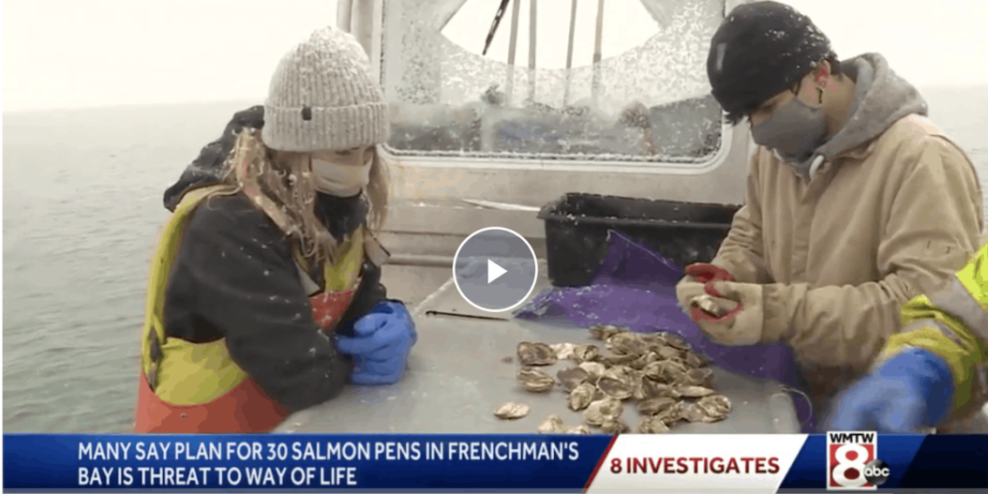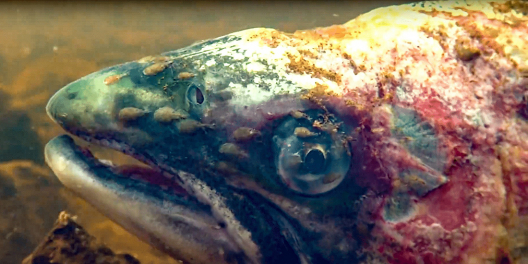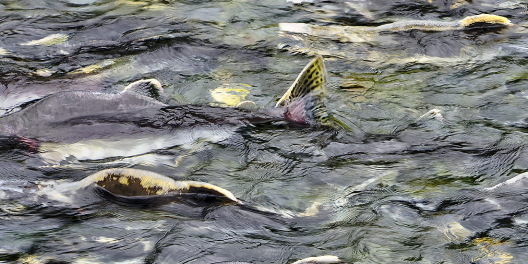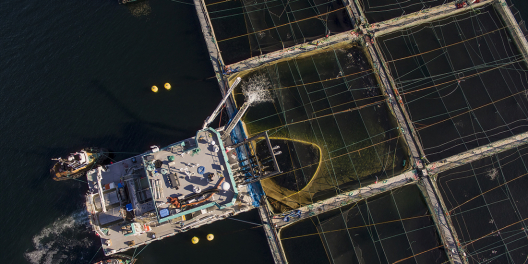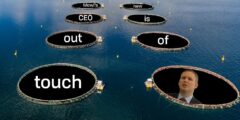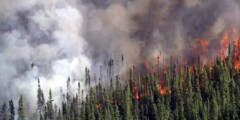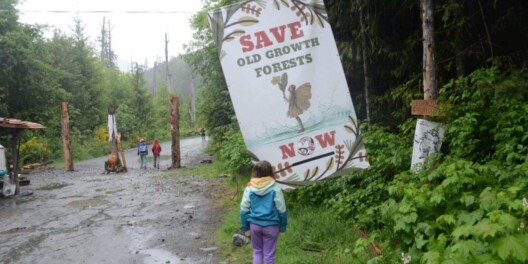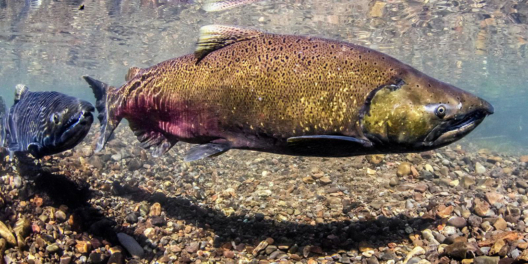Controversy surrounds factory salmon farming everywhere, not just in BC. Our closest neighbours to the north and south have banned salmon farming, and now the pressure is growing for Maine on the east coast to do the same.
A Norwegian-based company ironically named American Aquafarms is stirring controversy with its industrial salmon farm proposal near Bar Harbor, Maine, in the Atlantic Ocean about 100 kilometres south of the New Brunswick-Canadian border.
Some BC mayors complain about Ottawa’s decision to phase out 19 floating salmon feedlots in the Discovery Islands by July 2022. Over a hundred First Nations, wilderness tourism operators, commercial and sport fishing groups and environmental groups had called for the federal government to mothball the facilities near Campbell River to protect collapsing wild salmon stocks.
The government consulted with the seven First Nations – the Homalco, Klahoose, K’ómoks, Kwaikah, Tla’amin, We Wai Kai and Wei Wai Kum – opposed the commercial salmon floating feedlots because of alarming research documenting the negative impacts caused by the disease, parasites and pesticides.
Alaska banned salmon farming in 1990. Washington State is phasing out salmon factories by 2025 after New Brunswick-based Cooke Aquaculture saw thousands of Atlantic salmon escape in 2018 into the waters off the San Juan Islands south of Vancouver Island.
Now local opposition is growing in Maine to a proposal to raise up to 66 million pounds of factory-farmed salmon in 30 pens in Frenchman Bay near the foot of Acadia National Park.
As in BC, the Frenchman Bay proponent is based in Norwegian, but there are two differences between the Maine proposal and what is happening here.
In Maine, the Norwegian-based company is proposing a closed-pen facility. This would isolate the feedstock from wild salmon, unlike the open-pens used in BC. In addition, the Maine proponent promises they would pump all the water and fish waste out of the floating closed pens to limit the impact to the ecosystem from issues common in open-pen systems, such as lice, antibiotics and pesticides.
The Frenchman Bay proposal would also grow Atlantic salmon, which, although wiped out in most of their natural habitat along the Atlantic coast, are native to the eastern seaboard. This lessens the potential impact of pen-raised salmon overwhelming wild species, a consistent threat that has plagued BC operators and incited the coming ban in Washington State.
Even though the Maine proposal will have native Atlantic species and closed pens, locals – especially lobstermen – aren’t convinced, and oppose the project.
30 lobstermen in Frenchman Bay have raised concerns about the environmental impacts that could threaten their livelihood as well as lax enforcement by Maine’s Department of Marine Resources. Lobster fishing in the region is a 200-year-old legacy fishery worth $1.6 billion annually.
Local property owners are also opposed.
The local ABC TV affiliate quoted Ted O’Meara, a representative of the property owners in Bar Harbor: “These are the wrong people with the wrong project and the wrong technology in absolutely the wrong place.”
While the countries, accents, species and even oceans differ, the impacts on local livelihoods and ecosystems are similar, as is the growing local opposition.
